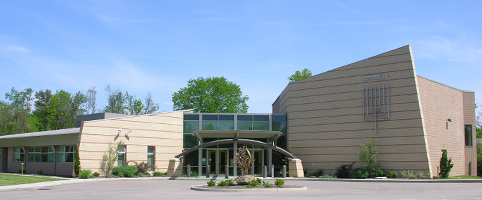By Rabbi Gershom Barnard
In the Additional Notes to Deuteronomy written by the late Rabbi J.H. Hertz in his edition to the Humash, we find the following:
The respect and reverence which womanhood enjoyed in Judaism are not limited to noble and beautiful sayings. That respect and reverence were translated into life ... One test alone is sufficient to show the abyss, in actual life, between Jewish and non-Jewish chivalry down to modern times. That test is wife-beating ...Both Rabbenu Tam, the renowned grandson of Rashi, and Rabbi Meir of Rothenberg, the illustrious jurist, poet, martyr and leader of thirteenth century Judaism, could declare: ‘This is thing not done in Israel’ ... In modern times, friend and foe of the Jew alike speak with admiration of his home ... The following description may well be quoted here of the Sabbath eve of a humble toiler in the London Ghetto [of the turn of the century]:... ‘The Ghetto welcomed the Sabbath Bride with proud song and humble feast, and sped her parting with optimistic symbolisms of fire and wine, of spice and light and shadow. All around, their neighbours sought distraction in the blazing public-houses, and their tipsy bellowings resounded through the streets and mingled with the Hebrew hymns. Here and there the voice of a beaten woman rose on the air. But no Son of the Covenant was among the revelers or the wife-beaters.’
Rabbi Hertz’s writings made a generation of English speaking Jews, often the victims of discrimination, prejudice, and the disparagement of their religion, proud of their heritage. Unfortunately, the rabbi’s communal purpose was sometimes achieved at the cost of the truth. The truth is that Jews abuse alcohol and other chemical substances, and the truth is that Jews abuse their spouses. We do not have good statistics about the incidence of domestic abuse in Jewish families, but there is not a shadow of a doubt that such abuse occurs, and it is not the rare exception that "proves the rule." In any case, even one instance of abuse is too many.
Needless to say, abuse of one’s spouse or other family members is completely contrary to Jewish law and teachings. For all its patriarchal characteristics, historical Judaism did not give husbands the authority to assault their wives, verbally or physically (including sexually).
Unfortunately, the belief that Jewish men do not abuse their wives has made the situation of abused Jewish wives all the more difficult. (I have sometimes used the phrase "domestic abuse" and sometimes the phrase "spousal abuse." There are many different combinations of abusive behavior which can occur in a family. Right now, I am not dealing with abuse of children or of parents. In principle, wives can abuse their husbands, just as husbands can abuse their wives. However, for historical social reasons, wife-abuse is more common than husband-abuse. When we are speaking of actual physical abuse, the difference in frequency between the two possibilities is overwhelming.
Therefore, while recognizing that there can be many different kinds of abusive situations, I am going to focus on husbands’ abuse of their wives.) Sometimes, women, believing that "Jewish men don’t do that", believe that they are at fault for what happens to them. Often, especially in closely-knit Jewish communities, women feel that, by complaining about their husbands’ behavior, they are undermining community values, such as shalom bayit (domestic harmony).
It is a cruel irony that the value of shalom bayit is often invoked to deny or cover up the most blatant violations of domestic harmony. Relatives and friends of the victim may close their eyes to what is going on, or they may discount her story (if she tells of abuse) as exaggerated or hysterical. Rabbis may be so blinded by the conventional talk about how wonderful Jewish family life is that they do not recognize cases of abuse. Also, since it is still true that most rabbis are men, rabbis may find it hard to believe that other men, respected leaders of the synagogue or community, would behave in such a reprehensible, "unJewish", way. They may also be psychologically naive, and they may counsel people to work out their problems together, not realizing that they are, in fact, thereby advising the abused wife to suffer more abuse.
Shouting at another person, demeaning or belittling another person, not to mention striking another person or coercing her to engage in sexual activity against her will, are wrong, even a single time. However, what is characteristic of abusive relationships is a recurring pattern of increasing tension, a violent outburst, and an apparent reconciliation. This last phase of the cycle is especially insidious, because it may lead people to believe that the incident of abuse was an isolated one. The abuser may, on some level, feel sorry for his behavior, and people may be misled into believing that he has truly done teshuvah (repentance). However, the respite is temporary, lasting only until the next cycle begins.
Here are some warning signs of an abusive situation:
1. One partner tries to isolate the other from her family and friends
2. One partner demands that the other spend all her free time with him.
3. One partner wants to know where the other is at all times.
4. One partner is very impatient.
5. One partner becomes angry if the other does not follow his advice.
6. One partner always blames the other instead of taking responsibility for his own actions.
7. One partner regularly belittles the other.
An abusive partner may well have been the victim of abuse himself, and he needs help and counseling for his problem, but that need cannot be used as an excuse for abusing other people, nor should it deter a victim of domestic abuse from seeking help and safety herself.
One of the aspects of abusive relationships, one which often leads to the tragedy of serious injury or death, is that the abused partner often remains in her situation, suffering emotional or physical abuse for years. That fact may lead people to believe that the situation is not so bad. However, it is more likely to be the result of denial of the problem (denial fed by the myth that Jewish men don’t beat their wives), learned passivity, or a feeling of being trapped, of having no options.
No one should tolerate verbal, emotional, physical, or sexual abuse. The first step to take to stop such behavior is to say, "I don’t want you ever to talk to me like that again," or "I don’t want you ever to treat me like that again." Such assertiveness is likely to distinguish between a momentarily inconsiderate partner (who will probably respond positively) and an abusive one (who will not, except possibly for a short time).
If you feel that you are the victim of domestic abuse, get help immediately.
1. Speak to me. I hope that my having written this article indicates that I will not dismiss the possibility of domestic abuse in Jewish Families.
2. Call Jewish Family Service (469-1188) or another counselor.
3. In an emergency, call the Women Helping Women 24 hour hotline (872-9259)
Rabbi Abraham Twerski, M.D., a nationally known expert of substance abuse, who became, through his work, an expert on domestic abuse as well, called his book on that latter subject The Shame Borne In Silence. Ending the silence is the first step to ending the shame.

